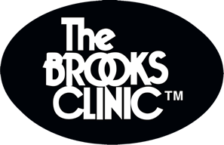While the physical injuries from auto injuries may be apparent and receive immediate attention, there is another side to the aftermath that often goes unnoticed: hidden emotional trauma. Beyond the surface-level damage, auto accidents can leave a lasting impact on our mental and emotional well-being. Let’s explore the world of hidden emotional trauma after an auto accident, exploring the common experiences, signs to watch out for, and the importance of seeking support and healing. Let’s uncover the often overlooked but significant emotional journey that follows such incidents, shedding light on the road to recovery for those who have been affected.
Types of Emotional Trauma
- Post-Traumatic Stress Disorder (PTSD): Just like soldiers returning from war, individuals involved in traumatic car accidents can experience PTSD. This condition can manifest as recurring nightmares, flashbacks, anxiety, or even avoidance of driving or being near the site of the accident.
- Anxiety and Panic Disorders: Auto accidents can leave a lasting impact on a person’s sense of safety and control. As a result, individuals may develop anxiety or panic disorders, leading to intense feelings of fear, worry, and even physical symptoms such as rapid heartbeat or difficulty breathing.
- Depression: Dealing with the aftermath of an auto accident can sometimes trigger or worsen symptoms of depression. Feelings of sadness, hopelessness, loss of interest in previously enjoyed activities, and changes in appetite or sleep patterns may emerge.
- Phobias and Specific Fears: The trauma associated with an auto accident can lead to the development of specific fears or phobias. For example, someone involved in a severe collision may develop a fear of driving or being a passenger in a car, making it challenging for them to engage in everyday activities.
- Survivor’s Guilt: Those who have survived a car accident while others involved did not may experience survivor’s guilt. They may struggle with feelings of guilt, self-blame, and a constant questioning of “Why me?” This emotional burden can be challenging to bear.
Ways To Deal With Emotional Trauma
- Seek Professional Help: Consider reaching out to a mental health professional who specializes in trauma or post-traumatic stress. They can provide guidance, support, and evidence-based therapies such as cognitive-behavioral therapy (CBT) or eye movement desensitization and reprocessing (EMDR). These therapies can help you process the traumatic event, manage distressing symptoms, and develop healthy coping mechanisms.
- Practice Self-Care: Engaging in self-care activities can play a significant role in your emotional healing. Take time for yourself to engage in activities that bring you joy and relaxation. This can include exercise, meditation, journaling, spending time in nature, or pursuing hobbies that help you unwind. Prioritize self-care to nurture your overall well-being and give yourself the care and compassion you deserve.
- Build a Support System: Surrounding yourself with a supportive network of friends, family, or support groups can make a tremendous difference in your recovery journey. Sharing your feelings and experiences with others who can empathize and provide understanding can help alleviate feelings of isolation. Consider joining support groups or seeking out online communities where you can connect with others who have gone through similar experiences.
Healing from emotional trauma takes time and is a unique process for each individual. It’s important to be patient with yourself and to not hesitate to seek help when needed. With the right support and self-care practices, you can gradually regain a sense of emotional well-being and move forward on your healing journey.
Conclusion
In conclusion, the impact of an auto accident can extend far beyond physical injuries. The hidden emotional trauma resulting from such incidents deserves recognition and attention. At The Brooks Clinic, our providers understand the profound impact that auto accidents can have on an individual’s mental and emotional well-being. Our compassionate team is dedicated to providing comprehensive care that addresses not only the physical injuries but also the hidden emotional trauma. We encourage anyone who has experienced an auto accident to seek the support and assistance they need to navigate the healing process. Remember, healing is possible, and you don’t have to face it alone. Together, we can help you regain control, find healing, and restore a sense of emotional well-being after an auto accident.




